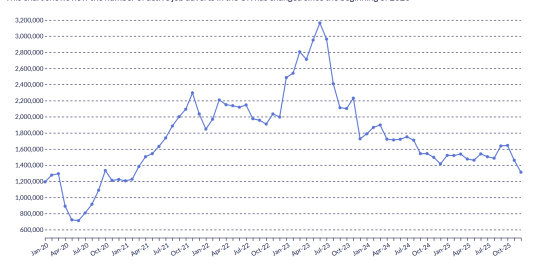New European interim management employment research from Executives Online, indicates that interim managers in Belgium, the UK or the Netherlands stand the best chance of working full time. The European Interim Report, which surveyed 1,687 interim managers across Europe shows that well over half of all interims in Belgium are working full time, followed by 46 percent in the UK, and 44 percent in the Netherlands, while only 33 percent of interim managers in France are in a similarly enviable position.
The research also shows that nearly half (48 percent) of all interim managers in France are not on assignment, compared with 30 percent in the Netherlands, 31 percent in Belgium and 37 percent in Germany.
Although interim managers in some European countries may be busier than in others, they may not be able to command the same day rates. Executives Online’s research shows that the highest average billing rates are in Germany at €927 per day, followed by the Netherlands at €891 per day. So, while interim managers in France may be less busy than in other counties, their fees are high up in the rankings at €859 per day. Average daily rates in Belgium are €806, and in the UK €760. The lowest paid interim managers in Europe are in Italy at €600/day - a third less than in Germany.
The length of assignments for interim managers also varies considerably by country. Ireland reports the highest percentage of interims working on short-term assignments (less than 6 months) at 54 percent, compared with 44 percent of interims in France and 43 percent in the UK. Belgium boasts the largest percentage of interim managers working on long-term assignments (over 6 months) at 42 percent, while Italy has 37 percent and the Netherlands 27 percent. At the other end of the scale, Ireland has the smallest percentage of interim managers on long-term assignments at 19 percent, followed by the UK with 22 percent and France with 25 percent.
Across European countries, with the exception of the UK, the key motivator driving usage of interim managers is change management involving leading a major improvement or transformation project. In the UK, the need to cover temporary skills or competence shortage within a company is the main reason for employing an interim manager.
Andrew Nicholas, Director at Executives Online, said: “Changes in the interim management sector often signal shifts in the economic climate. Primary reasons that companies engage interim managers include change management, crisis management, addressing urgent and major issues/turnaround, and implementation of major initiatives. Many of these imperatives are driven by shifts in the economic environment, as companies equip themselves to weather a recession or capitalise on an emerging trend.”
The European Interim Report shows that interim managers believe Europe still has some way to go in its economic recovery. More than three quarters (76 percent) believe the economy won’t be in a normal or steady growth state until the end of 2015 or later. The most pessimistic interim managers are based in France, with 43 percent of interims there believing that the economy will not return to normal growth until 2016 or later. 40 percent of interim managers in Italy believe the same. On average 67 percent of interim managers across Europe believe that companies will use interim managers more to drive growth during the economic recovery.
Nicholas continued: “As front-line practitioners, often leading these crucial change and turnaround projects, interim managers have a unique vantage point from which to assess the direction of the economy and business cycle. They can, therefore, provide a useful barometer of the current climate and confidence for the future.”
Executives Online’s research also shows marked differences in interim managers’ relationship with their interim careers. In Ireland 84 percent of interim managers would consider permanent employment, while 83 percent of interim managers in both Italy and the Netherlands feel the same. In comparison, the UK, Belgium, and Germany have the highest proportion of interim managers who say they are fully committed to interim management as a career choice.
Nicholas concluded: “This may be a reflection on the relative buoyancy of the interim management sector in their countries, in terms of both the amount of work available, helping to keep individuals working to capacity, and the level of fees interim managers are able to command. As the economy continues to recover and confidence grows stronger, we predict that there will be a greater number of interim managers working on mid-term assignments at expedient fees, and that the levels of commitment to interim management as a career choice will shift upwards as the sector demonstrates greater choice and improved security.”






